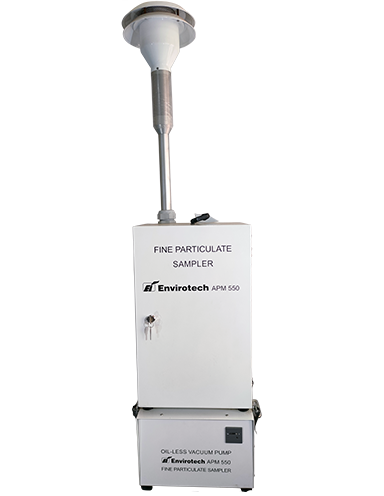Dust Monitoring
An objective of ambient air quality monitoring programs is to gauge the deterioration of air quality caused by local human activity. All micro organisms responsible for causing the large number of pathogen-caused respiratory, eye and skin diseases, various allergens, fibrous materials, heavy metals, metallic fumes and even many organic carcinogens are present in air in the form of suspended particulates. It is for this reason that TSP (Total Suspended Particulate) or SPM (Suspended Particulate Matter) in air has been world-over considered a “Criteria Parameter” to indicate air quality. Health effects are caused primarily by respirable particulates in the size range of 0.3 to 10 microns.
- SPM
- PM 10
- PM 1
- Combo PM 10 & PM 2.5
- Heavy Metals
- Pesticides, PAH
Dust particles of size less than 2.5 microns is considered as Fine Dust. These particles penetrate deeply in to the lungs and lead to number of health impacts like breathing problem, burning or sensation in the eyes etc. Monitoring of PM 2.5 was made mandatory under NAAQS, 2009
Model No. | Distinct Feature | Downloads | ||
|---|---|---|---|---|
 |
| |||
 |
| |||
 |
| |||
 |
| |||
Comparison
Product Name | APM 550 | APM 550 Mini | APM 550 MFC | APM 550 EL |
|---|---|---|---|---|
Principle | Impeller Based(As per USEPA Published design) | Impeller Based(As per USEPA Published design) | Impeller Based(As per USEPA Published design) | Impeller Based(As per USEPA Published design) |
Pump Assembly | Imported (16.7 LPM); Placed separately | Imported (16.7 LPM)Integrated with the unit | Indigenous | Imported (16.7 LPM)Integrated with the unit |
Flow Rate Controller | Dry Gas Meter | Rotameter & Time Totalizer | Digital Display | Digital Display |
Flow Controller | No | No | Mass Flow Controller; Flow is controlled through VFD Drive | Electronic Flow Controller; Flow is controlled through Valve System |
Provision for Gaseous Sampling Attachment | Yes | Yes | No | Yes |









